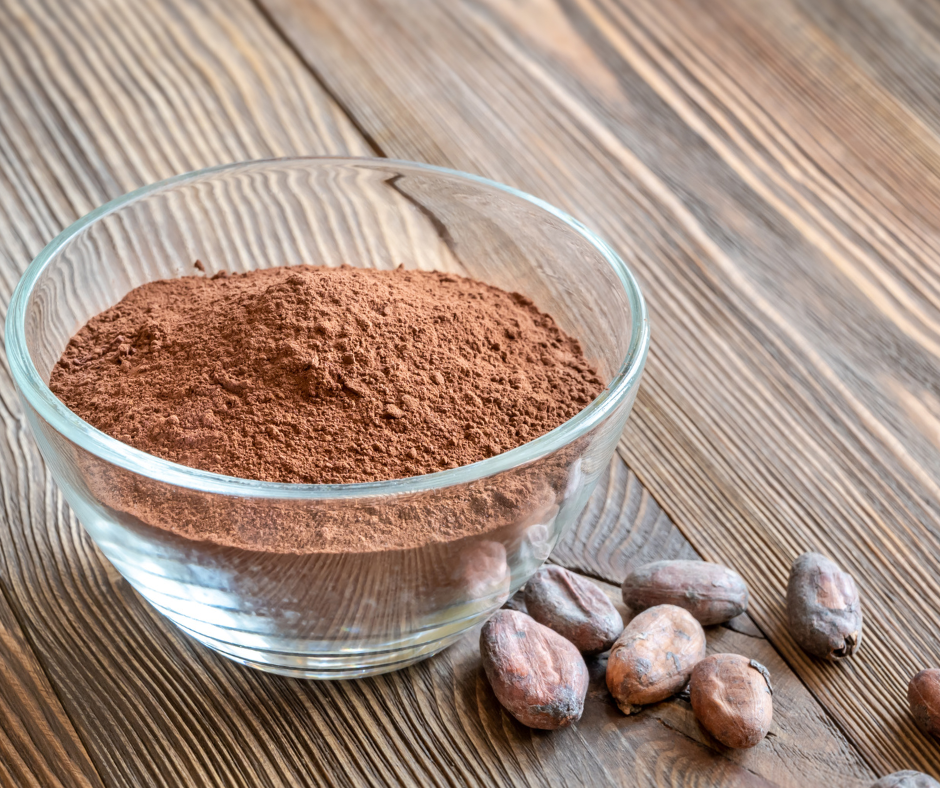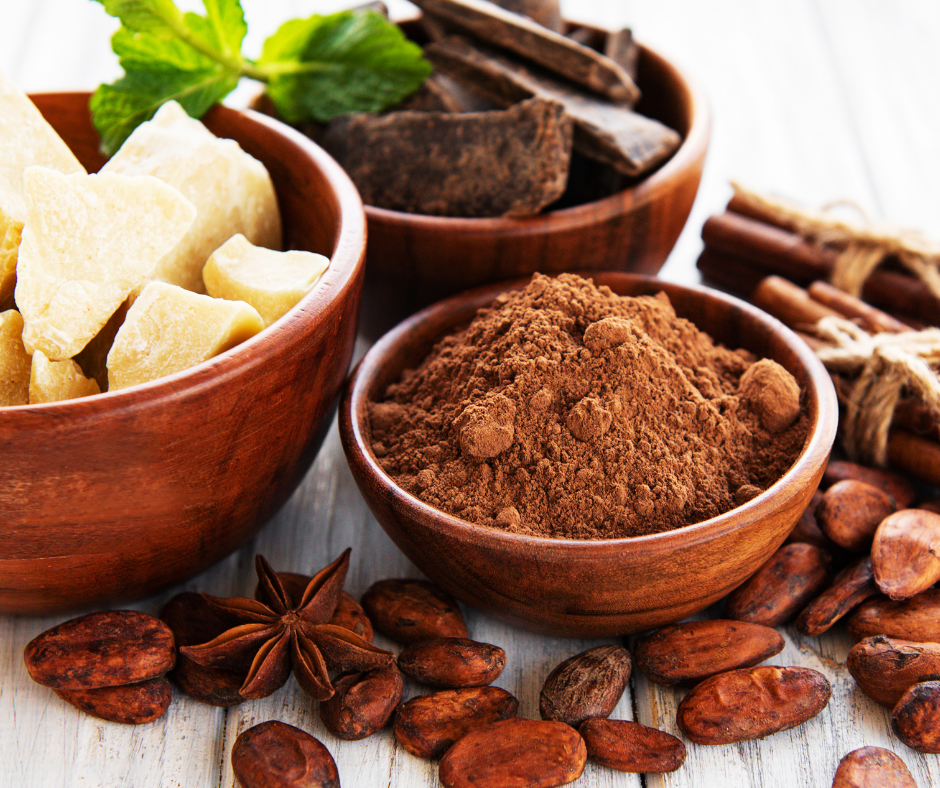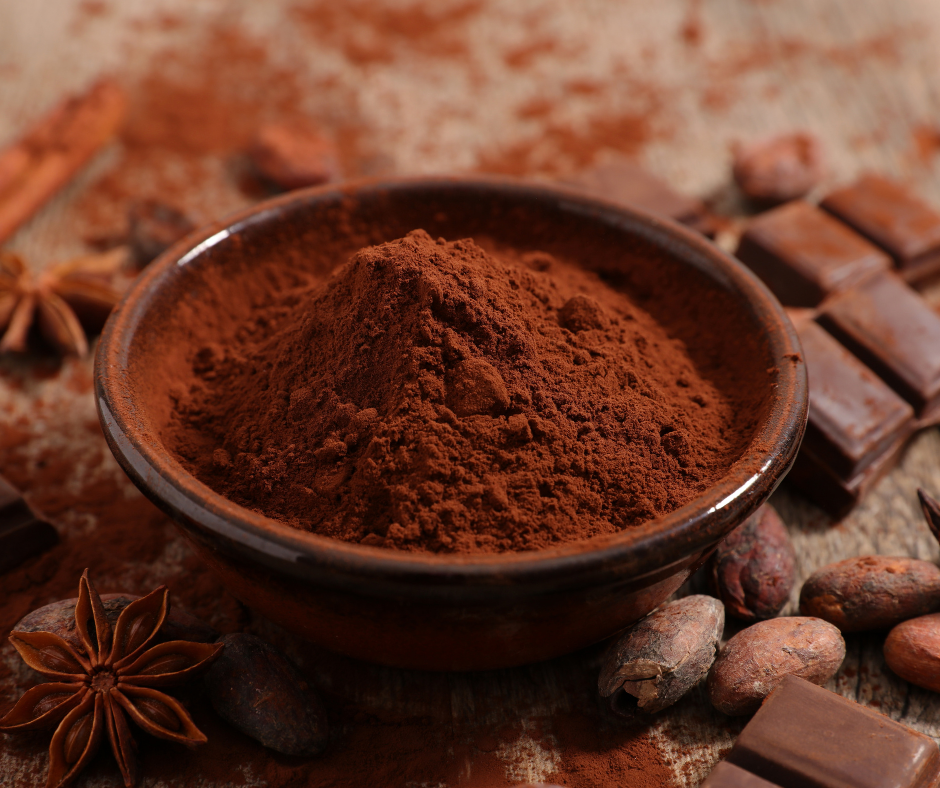Introduction
Cocoa powder has been a beloved ingredient for centuries, adding depth and flavor to baked goods, desserts, and beverages. But cocoa powder isn’t just a tasty addition to recipes, it also has a fascinating history and numerous health benefits that make it a worthy addition to any pantry. So, Do Cocoa Powder Have Caffeine? This article will explore some interesting facts about cocoa powder, specifically its caffeine content.
The Popularity Of Cocoa Powder As A Pantry Staple
Cocoa powder is derived from cocoa beans native to South America and has been traded and consumed for thousands of years. Today, cocoa powder is widely available in grocery stores and online, and it is a go-to ingredient for home cooks and professional chefs alike. In addition to its delicious taste and versatility, cocoa powder is renowned for its high levels of antioxidants, which can help protect against certain diseases.
The Importance Of Understanding Its Caffeine Content
While cocoa powder is a healthy ingredient, it is important to understand its caffeine content. Five ounces of unsweetened cocoa powder contains 230 milligrams of caffeine, which is more than enough to make some people feel jittery or anxious. Individuals sensitive to caffeine should be cautious when consuming cocoa powder, and those who are caffeine-sensitive should consider using cocoa powder that has undergone a decaffeination process.
Research has shown that decaffeination can significantly reduce cocoa powder’s caffeine levels while retaining its functional components, such as polyphenols and theobromine. A study published in the October 2013 edition of the Journal of Food Science detailed a process that removed 80.1 percent of the cocoa powder’s caffeine while retaining almost all of the polyphenols and theobromine.
In conclusion, cocoa powder is a wonderful ingredient to have on hand for all your baking and cooking needs, but it is important to be aware of its caffeine content. Individuals sensitive to caffeine should take necessary precautions and consider using a decaffeinated version of cocoa powder.
What Is Cocoa Powder?
Defining Cocoa Powder
Cocoa powder is the powdered form of cocoa solids extracted from cocoa beans. These beans are native to South America and widely cultivated in West Africa and other tropical regions. The cocoa solids are separated from the cocoa butter used in other products such as chocolate bars and cosmetics.
Cocoa powder is known for its rich chocolate flavor and deep brown color, making it a popular ingredient in desserts, baked goods, and hot chocolate. It is also used in savory dishes such as mole sauce. Cocoa powder is naturally low in fat and calories, making it a healthy ingredient for those seeking to reduce their calorie intake.
Types Of Cocoa Powder
There are two main types of cocoa powder: natural and Dutch-processed. Natural cocoa powder is made by roasting cocoa beans and grinding them into a fine powder. On the other hand, Dutch-processed cocoa powder is treated with an alkaline solution to neutralize its natural acidity, resulting in a milder flavor and darker color.
In addition to natural and Dutch-processed cocoa powder, various blends are marketed for specific uses, such as baking or hot cocoa. Some cocoa powders may be sweetened or flavored with vanilla or other spices.
Cocoa powder is a versatile ingredient that adds rich flavor and deep color to various dishes. However, it is important to be aware of its caffeine content, especially for those sensitive to caffeine. By understanding the different types of cocoa powder and their uses, home cooks and professional chefs can take advantage of the unique properties of this beloved ingredient.
Understanding Caffeine
What Is Caffeine?
Caffeine is a natural stimulant in various foods and beverages, including coffee, tea, chocolate, and cocoa powder. It boosts energy levels, improves mental alertness, and enhances physical performance. However, caffeine can also have negative effects on some people, including jitters, anxiety, and difficulty sleeping.
Why Caffeine In Cocoa Powder Matters
While cocoa powder is a healthy ingredient overall, it does contain a notable amount of caffeine. According to the USDA, 100 grams or 3.5 ounces of unsweetened cocoa powder contains 230 milligrams of caffeine. For those who are sensitive to caffeine, this can be a concern.
However, there is a solution. A study published in the October 2013 edition of the Journal of Food Science detailed a process to reduce the caffeine levels of cocoa powder. This decaffeination removes 80.1 percent of the cocoa powder’s caffeine while retaining almost all of the polyphenols and theobromine, which are beneficial for health.
It’s important to note that coffee’s caffeine content can vary widely, depending on its source, processing method, brewing technique, and brewing time. For example, an eight-ounce cup of coffee contains anywhere from 95 to 165 milligrams of caffeine, while a one-ounce serving of brewed espresso contains 47 to 64 milligrams.
Decaffeinated cocoa powder is an excellent option if you are sensitive to caffeine or want to enjoy the benefits of cocoa powder without the caffeine. It retains the rich chocolate flavor and deep brown color of regular cocoa powder while greatly reducing caffeine’s negative effects on the body. Home cooks and professional chefs can use decaffeinated cocoa powder in various dishes, from desserts to savory sauces, with delicious results.
Do Cocoa Powder Have Caffeine?
Caffeine Content Of Unsweetened Cocoa Powder
Cocoa powder is a commonly used item in most pantries, often used to add a rich chocolate flavor to baked goods and hot beverages. But Do Cocoa Powder Have Caffeine? While the caffeine content of cocoa powder may not be at the forefront of your mind, it is worth considering if you are trying to reduce your daily caffeine intake.
According to the USDA, a 100-gram or 3.5-ounce serving of unsweetened cocoa powder contains 230 milligrams of caffeine. This may not seem like a large amount, but for those who are sensitive to caffeine, it is worth noting.
Caffeine Content Of Sweetened Cocoa Powder
Sweetened cocoa powder, often used in baking and for making hot chocolate, contains slightly more caffeine than its unsweetened counterpart. According to the USDA, 100 grams or 3.5 ounces of sweetened cocoa powder contains about 230 milligrams of caffeine.
For comparison, one tablespoon of pure cocoa powder contains about 12 milligrams of caffeine, which is only a fraction of the amount in sweetened cocoa powder. A standard 8-ounce cup of coffee contains between 95 and 165 milligrams of caffeine, making cocoa powder a relatively moderate source of caffeine.
If you are concerned about the caffeine content of your cocoa powder, there is an option. Decaffeinated cocoa powder, which has undergone a process to remove much of the caffeine while retaining the beneficial compounds found in cocoa, such as polyphenols and theobromine, is available. Decaffeinated cocoa powder is an excellent option for those sensitive to caffeine but still want to enjoy the rich flavor of chocolate in their favorite recipes.
Health Benefits Of Cocoa Powder
Cocoa powder is a popular ingredient in many households, known for its rich chocolate flavor and versatility in baking and cooking. However, it also offers numerous health benefits, especially if the cocoa powder contains at least 72% cocoa. Here are some of the benefits of incorporating cocoa powder into your diet:
Antioxidants And Anti-inflammatory Properties
Cocoa powder is rich in polyphenols, an antioxidant in fruits, vegetables, tea, and dark chocolate. These antioxidants protect the body from damage caused by free radicals and unstable molecules that can harm cells and contribute to chronic diseases like cancer and heart disease. Polyphenols also have anti-inflammatory properties that can reduce inflammation throughout the body, which is known to be a contributing factor in many chronic diseases.
Effects On Brain Function And Mood
Research has shown that cocoa powder can improve brain function and mood. Studies indicate that cocoa helps to improve attention, working memory, and cognitive performance, especially in older adults. Cocoa also contains theobromine, a natural compound linked to increased alertness and improved mood.
Cocoa powder may also have positive effects on neurodegenerative diseases like Alzheimer’s and Parkinson’s disease. Cocoa contains flavonoids shown to improve brain function and protect against cognitive decline.
Furthermore, cocoa powder may aid in strengthening the immune system. It contains minerals like iron, zinc, and magnesium that aid proper body function and boost the immune system.
In conclusion, cocoa powder provides various health benefits, including antioxidant and anti-inflammatory properties, positive effects on brain function and mood, and strengthening of the immune system. Incorporating cocoa powder into the diet in moderation can be a tasty and healthy choice for individuals of all ages.
Side Effects Of Cocoa Powder
While cocoa powder has several health benefits, it can also cause some adverse reactions. Here are some side effects of consuming cocoa powder:
Heartburn And Digestion Issues
Cocoa powder contains caffeine, which can increase stomach acid production and lead to heartburn, acid reflux, and other digestive problems. The high fiber content in cocoa can also cause some people bloating, constipation, and gas.
Allergies And Toxicity
Cocoa powder may also cause allergic reactions like hives, itching, and rashes in some individuals. It can also lead to anaphylaxis in some rare cases, which is a severe, life-threatening allergic reaction. Cocoa powder contains theobromine, a toxic methylxanthine compound in pets like dogs, cats, and horses. If pets ingest cocoa powder, it can lead to vomiting, diarrhea, seizures, and even death.
Consuming cocoa powder in moderation is generally safe for most people. However, individuals who are sensitive to caffeine or have pre-existing medical conditions like GERD, irritable bowel syndrome (IBS), or inflammatory bowel disease (IBD) should consult their healthcare provider before consuming cocoa powder.
In conclusion, while cocoa powder has several health benefits, it is essential to be aware of its potential side effects. If you experience any adverse reactions like migraines, nausea, or skin allergies, stop consuming cocoa powder and seek medical attention immediately.
How To Reduce Caffeine In Cocoa Powder?
While cocoa powder has several health benefits, its caffeine content may cause adverse effects like increased heart rate, jitters, and insomnia in some individuals. Luckily, there are a few ways to reduce caffeine content in cocoa powder while retaining its functional components, like polyphenols and theobromine. Here are some tips and alternative ingredients to consider:
Tips For Reducing Caffeine Content
One way to reduce the caffeine content in cocoa powder is through decaffeination. Removing caffeine involves treating cocoa beans or powder with solvents like methylene chloride or ethyl acetate. However, this method may remove functional components like polyphenols and theobromine from cocoa powder.
Another way to reduce caffeine content in cocoa powder is through natural decaffeination methods like water or carbon dioxide. These methods use pressure or hot water to extract the caffeine without affecting the cocoa powder’s functional components. Studies have shown that supercritical carbon dioxide extraction can remove up to 80.1% of caffeine while retaining almost all of the polyphenols and theobromine from cocoa powder.
Alternative Ingredients Or Substitutes
If you’re sensitive to caffeine or want to avoid it, consider using carob powder instead of cocoa powder. Carob is a dark, sweet powder that is low in fat and caffeine-free. It tastes slightly different than cocoa powder but can be used similarly for baking or making chocolate-like sauces.
Another alternative is combining cocoa powder and carob powder to reduce the overall caffeine content in your recipe. You can experiment with different cocoa and carob powder ratios to find the right balance for your taste preferences.
In conclusion, reducing the caffeine content in cocoa powder can be achieved through various methods like decaffeination or using alternative ingredients like carob powder. Remember that cocoa powder still contains other functional components like polyphenols and theobromine, which may have health benefits. As with any dietary change, it’s best to consult a healthcare provider if you have pre-existing medical conditions or concerns.
Conclusion
Now you should know the answer to ‘Do Cocoa Powder Have Caffeine?’. While cocoa powder contains caffeine, it is in much smaller amounts than coffee or tea. Caffeine can also be reduced through natural decaffeination methods or alternative ingredients such as carob powder. However, it’s important to note that cocoa powder still contains other components like polyphenols and theobromine that may provide health benefits.
Final Thoughts On Cocoa Powder And Caffeine
Cocoa powder can be a healthy addition to a balanced diet, offering several potential health benefits. However, some individuals may be more sensitive to its caffeine content and must be cautious with their consumption. It’s important to listen to your body and consult a healthcare provider with concerns.
Recommendations For Moderate Consumption
Moderation is key when consuming cocoa powder or chocolate products. Consuming no more than 1-2 tablespoons of cocoa powder daily is recommended, as larger quantities may lead to adverse effects like jitteriness and increased heart rate. It’s also important to choose high-quality, unsweetened cocoa powder to avoid consuming excess sugars and additives. By following these guidelines, individuals can enjoy the potential health benefits of cocoa powder while minimizing any negative side effects.
FAQ: Do Cocoa Powder Have Caffeine?
Q: Do Cocoa Powder Have Caffeine?
A: Yes, cocoa powder contains caffeine. According to the USDA, 3.5 ounces of unsweetened cocoa powder contains up to 230 milligrams of caffeine.
Q: How does the caffeine content in cocoa powder compare to coffee and tea?
A: The caffeine in cocoa powder is lower than in coffee or tea. For example, a typical cup of coffee contains around 95 milligrams of caffeine, while black tea contains 25-48 milligrams per cup.
Q: What are the potential health benefits of cocoa powder?
A: Some studies suggest that cocoa powder may have health benefits such as improving heart health, lowering blood pressure, and reducing inflammation. However, more research is needed to confirm these findings.
Q: Are there any risks or side effects associated with consuming cocoa powder?
A: While cocoa powder is generally considered safe for most people, consuming large amounts of caffeine can lead to side effects such as anxiety, insomnia, and heart palpitations. Additionally, some people may be allergic to cocoa or experience digestive issues after consuming it.
Q: How can I reduce my caffeine intake from cocoa powder?
A: To reduce your caffeine intake from cocoa powder, try switching to a low-caffeine or caffeine-free alternative. Alternatively, you could reduce the amount of cocoa powder you use in recipes or choose products with less cocoa powder overall.

Deb Carlson at Crosslake Coffee: Join Deb at Crosslake Coffee for a delightful blend of community, caffeine, and creativity. Discover the cozy ambiance and warm hospitality that make this local coffee shop a beloved gathering spot. From expertly crafted espresso drinks to mouthwatering pastries, Deb invites you to savor every sip and bite. Stay connected with the latest updates on specials, events, and live music performances by following Deb Carlson at Crosslake Coffee on social media. Embrace the vibrant online community and share your love for great coffee and good company with fellow enthusiasts. Don’t miss out on a moment of the Crosslake Coffee experience – connect with Deb on social media today.



